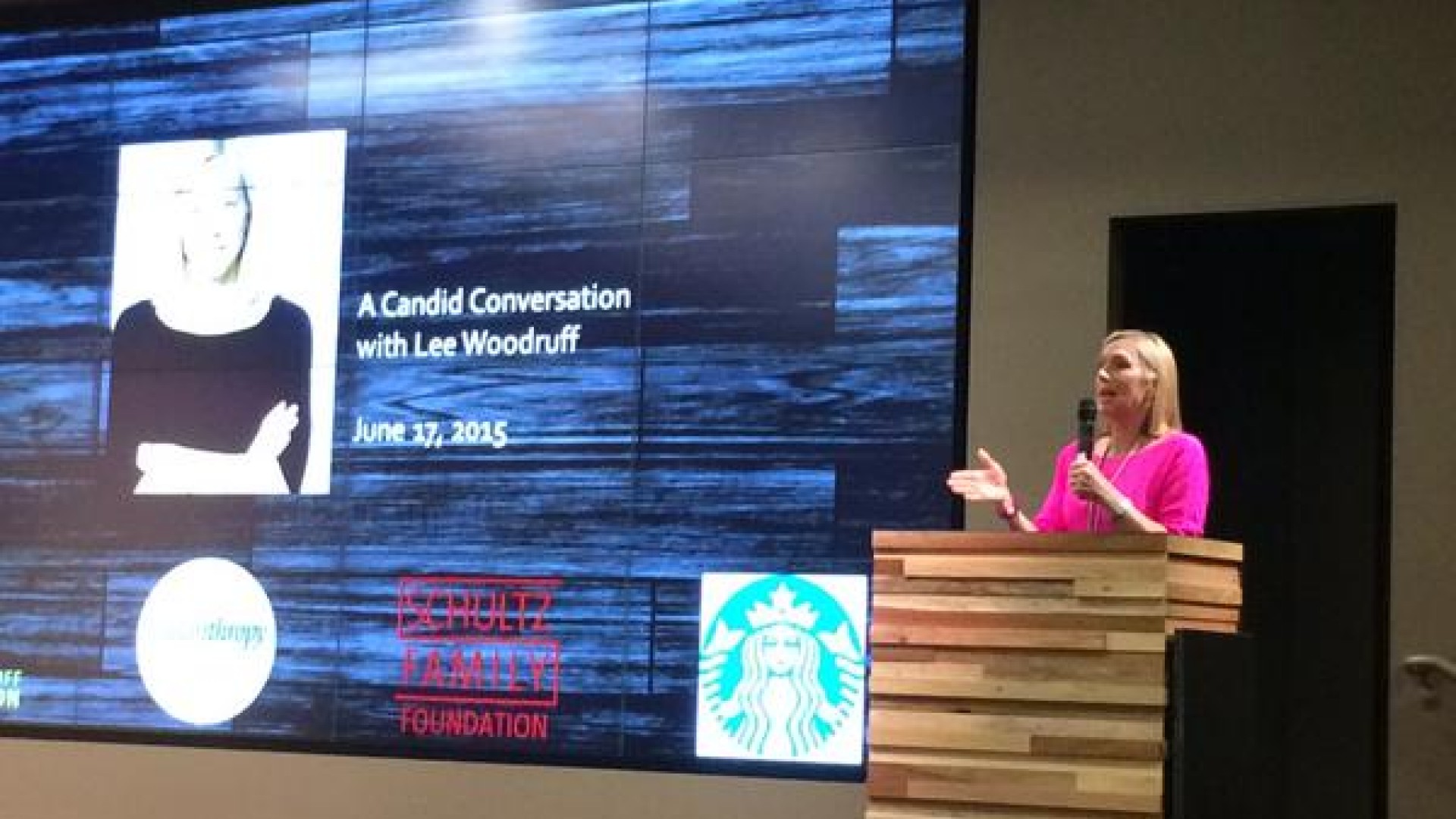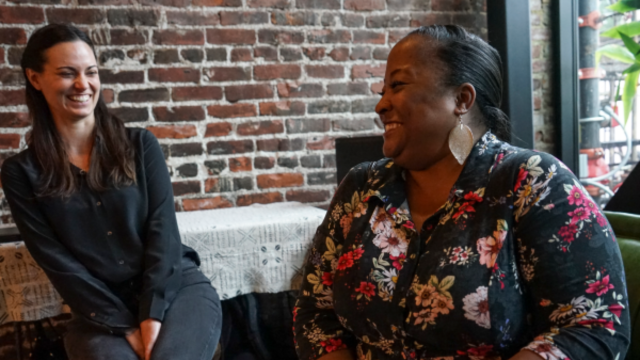
Nicole Neroulias Gupte, Communications Manager
In another life, Bob Woodruff is anchoring ABC’s World News Tonight, then heading home to his wife Lee and their four kids in the suburbs.
But in this life, they are survivors of Bob’s traumatic brain injury — sustained while reporting from Iraq in 2006 — and co-founders of the Bob Woodruff Foundation, which has raised $25 million for nonprofits supporting post-9/11 veterans and their families.
At a luncheon organized by Philanthropy Northwest and the Schultz Family Foundation at Starbucks headquarters Wednesday, Lee Woodruff narrated their family's journey from blissful ignorance to personal investment in wounded warriors, traumatic brain injuries (TBIs) and post-traumatic stress disorder (PTSD).
“I grieve the way it was. In a heartbeat, I would take this back,” Woodruff admitted, of their life before Bob's injury. Since that’s not an option, they use their story to advocate for veterans, inspiring more philanthropists and policymakers to address their needs.
“You can get bitter," she said, "or you can decide to get better."
A New Normal
The January 2006 blast to the left side of Bob's head damaged his speech and language abilities, leaving him with aphasia, a condition that makes it hard for him to recall common words. When he woke up from his monthlong coma, the trilingual journalist who had led entire newscasts from memory found himself struggling to say things like “buckle."
“He looked like he had been tied to the back of a truck and dragged along a gravel road,” Woodruff said. He didn’t know who was president, or even that he had twins. Five or six years earlier, he wouldn’t have survived, doctors told her.
Woodruff had considered the possibility of her husband's death in a war zone, particularly after their friend NBC anchor David Bloom died in Iraq in 2003, but somehow hadn’t considered a life-changing disability. What got her through the months and years of recovery are what she calls her four legs: family, friends, faith and “funny” — as in, being able to laugh at times during that first year, a welcome respite from the stress and grief, especially for their children.
“We called him ‘the half-head’ for a long time,” she said, adding that Bob more recently mixed up the words “compost” and “hospice."
From Bob's hospitalization, then as co-authors of In An Instant and through working on the foundation, she learned their situation was far from unique. Of about 1.5 million U.S. service members who have returned from deployments in Afghanistan and Iraq since Sept. 11, 2001, one in five suffers from post-traumatic stress, traumatic brain injury or depression, her foundation reports.
“I had my eyes open to what it means to serve. It’s a world I might have never known existed,” Woodruff said, crediting “the amazing humility and the incredible graciousness of military families” struggling to recover with far less support than her family has had.
Funding a Growing Need
The Bob Woodruff Foundation raises money for nonprofits serving veterans from the conflicts in Afghanistan and Iraq, focusing on rehabilitation and recovery, education and employment, and quality of life issues.
“Our grants come with strings attached, and we’re proud of that,” Woodruff said. Out of more than 40,000 possibilities across the country, the foundation looks for programs that can be replicated, with low overhead costs. In the Pacific Northwest, this includes Growing Veterans, an organization that employs veterans in farming, takes their produce to VA hospitals and engages them in peer support work.
Beyond the physical wounds, more services are needed to help veterans deal with their invisible wounds, she said — and help their families heal, too.
“It’s not just Bob who was hit by the bomb, it was all of us,” she said, of herself, their children, siblings and parents.
Military hospitals must adapt to handling critical cases that wouldn't have survived in the past, addressing the needs of families who are in shock, unprepared for long recoveries far from home, compounded by critical and conflicting information from numerous specialists. Give them reason to hope, she said, not just worst-case scenarios.
“You’re holding my future post-traumatic stress in your hands,” Woodruff said, tearfully recalling the busy doctor who told her Bob was "on the knife's edge."
Talk to the veterans and their families about their personal lives, not just about their physical conditions, she added. Talk about the future. Before deployments, talk about their marriages and kids, including whether male soldiers want to consider making provisions so they can still be able to have children in the event of a major injury.
“Never put a limitation on the human spirit," she concluded.
Philanthropy Northwest is committed to helping our members learn about supporting veterans and military families, whether it be via emerging practices or your existing portfolio. If you’d like to connect with your peers to continue the conversation, please contact Kristen Holway at kholway@philanthropynw.org.


